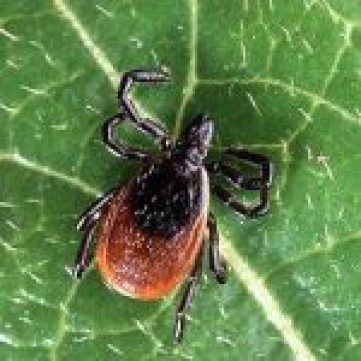Lyme Disease Testing
Offering:
- Advanced testing for Lyme Disease, other tick-borne diseases and concurrent infections
- Consultations with Lyme-literate practitioners
About Lyme Borreliosis
Lyme Disease was first named in the village Lyme, Connecticut, USA in 1975. The spirochete agent of Lyme disease was named Borrelia burgdorferi. This spirochete bacteria is carried by several tick vectors, primarily the deer tick Ixodes dammini (USA) and Ixodes ricinus (Europe). Lyme disease is transmitted to humans through tick bites and, in some cases, through bites of horse-flies and other insects.
It is an inflammatory disease, which involves multiple body systems and causes symptoms that mimic other diseases. It may begin with a bull’s eye rash and then progress to flu-like symptoms, and can lead to arthritis and/or many other symptoms. If left without adequate treatment, Lyme disease can progress to symptoms as serious as encephalitis, cardiomegaly, and inflammation of the pericardium and sensory nerves.
Tick-Borne Diseases
As infections with Borrelia are often accompanied by co-infections, these should also be taken into consideration. Co-infections complicate the diagnosis and treatment because they often evoke a more complex symptomatology. The co-pathogens can cause very specific, but also unspecific and “overlapping” symptoms.
Laboratory Testing
Conventional testing is often inadequate for identifying infections that have passed the acute phase. Chronic persisting infections such as Lyme Disease and related co-infections are thus often overlooked and poorly misunderstood, yet may continue to wreak havoc on multiple aspects of health and wellbeing.
In order to better determine which pathogens to test for, you may wish to schedule a consultation with an experienced clinician, who will analyse your symptoms with the aid of a checklist devised by Dr Armin Schwartzbach. This facilitates a better targeted selection of necessary laboratory tests for coinfections, thereby preventing testing for everything.
Armin Labs, Germany
Please see below for advanced laboratory tests from Armin Labs. These tests are used in relation to diagnosing tick-borne infections and the many concurrent infections that so often accompany Lyme Disease, particularly in its chronic persistent phases.
Deciding how and what to test for is something of a minefield, but identifying the pathogens that are draining your vitality can lead to renewed hope for a healthy future.
If you'd like to consult with a clinician to help you decide how to proceed, please get in touch.
Lab Tests for Lyme Borreliosis (blood)
- Borrelia burgdorferi-IgM and Borrelia burgdorferi-IgG antibodies: Conventional medical test for Lyme Disease - commonly fails to identify cases of chronic Lyme
- Borrelia IgG/IgM antibodies Seraspot
- Borrelia burgdorferi Elispot: Measures T-Cell immune response to Borrelia and tends to be a more reliable marker of Lyme Disease
- Borrelia miyamotoi Elispot
- CD57: Sub-population of Natural Killer Cells associated with immune suppression in chronic Lyme Disease and certain other bacterial infections
- Tickplex Basic IgG-/IgM-antibodies (Borrelia)
- Borrelia burgdorferi-DNA-PCR
Lab Tests for Co-Infections (blood)
- Ehrlichia & Anaplasma
- Bartonella
- Babesia
- Chlamydia pneumoniae
- Chlamydia trachomatis
- Mycoplasma
- Yersinia
- Rickettsia
- Yeast and Mould
- Viruses
- Epstein Barr Virus
- Herpes Simplex Virus (Types 1 & 2)
- Cytomegalovirus
- Varicella zoster virus
- Coxsackie Virus
- Human Herpes Virus (HHV4, HHV6, HHV7, HHV8)
- Enterovirus
- Parasites
Complete our Symptom Questionnaire
Questionnaire should be completed at home and then returned to your practitioner in advance of your consultation. Your symptoms will help your pracitioner to determine which of these tests are most suitable for you.
KNC Checklist for Co-Infections.pdf
Adobe Acrobat document [735.8 KB]
Request a Consultation
Food Intolerances and Infections
It is not uncommon for people to develop food sensitivities and intestinal barrier hyper-permeability ("leaky gut") in conjunction with other symptoms that may relate to infections such as Lyme Disease or various co-infections. Such food intolerances can add to the ever-increasing number of symptoms that you suffer from. Everyone has different dietary needs, and it can be life-changing to find out how best to eat to manage your symptoms. Consultations with experienced practitioner are recommended to discuss test results and their implications.

